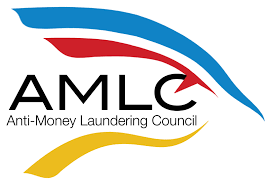The Philippines has again failed to get out of the “gray list” of Paris-based dirty money watchdog, the Financial Action Task Force (FATF), despite progress made in complying with the required action plans on anti-money laundering (AML) and combating financing of terrorism (CFT) measures.
In a Feb. 23, 2024 (Paris time) listing of “jurisdictions under increased monitoring” or the FATF gray list with the Philippines still on it, the FATF urged the country to implement action plans as soon as possible. The original deadline given the Philippines to implement action plans was January 2023. After a year of extension or until January 2024, the country faces another 12 months – or less – under the gray list.
The FATF however said that “the Philippines has taken steps towards improving its AML/CFT regime, including by identifying and investigating TF (terrorism financing) cases.”
As of Feb. 23, there are 21 countries in the gray list including the Philippines. The only other Asian country in the list is Vietnam.
During the latest FATF plenary, after assessing significant progress in resolving strategic AML/CFT deficiencies, four countries were delisted from the gray list, namely Barbados, Gibraltar, Uganda and United Arab Emirates. However, two countries were added, Namibia and Kenya.
Meanwhile, the FATF reiterated that the Philippines should work more to address its strategic deficiencies such an effective risk-based supervision of designated non-financial businesses and professions (DNFBPs). It should also show that it is using AML/CFT controls to mitigate risks associated with casino junkets; enhancing and streamlining law enforcement agencies’ access to beneficial ownership (BO) information and taking steps to ensure that BO information is accurate and up-to-date; demonstrating an increase in money laundering investigations and prosecutions in line with risk; and that it is increasing the prosecution of terrorist financing cases.
The central bank-led Anti Money Laundering Council (AMLC), the country’s financial intelligence unit, said early Saturday, Feb. 24, that while the Philippines remains on the FATF gray list, it has acknowledged the government’s accomplishments related to terrorism financing identification and investigation during its last round of progress report that AMLC submitted to the FATF Asia Pacific Group (APG) last Jan. 16.

AMLC Secretariat Executive Director Matthew M. David said that despite being retained on the gray list, the “government remains dedicated to strengthening the country’s position in the global fight against financial crimes.”
David pointed out that FATF has recognized progress made such as terrorism financing identification and investigation.
“This improvement in our AML/CFT regime is a strong recognition of the government’s efforts in curbing terrorism and terrorism financing incidents in the country. It also sends a positive signal to the international community on the unwavering commitment and continuous progress made by the Philippines in this front,” he said over the weekend.
David also said that a whole-of-nation approach that the government has been doing is “vital moving forward” and that AMLC is “happy that the collaborative effort among agencies in addressing areas for improvement as suggested by the FATF has been cited.”
Last month, President Ferdinand R. Marcos Jr. ordered concerned or relevant government agencies implementing AML/CFT measures to expedite efforts in “addressing deliverables set by FATF within the year.” Besides AMLC, the National Anti-Money Laundering/Counter-Terrorism Financing/ Counter-Proliferation Financing Coordinating Committee (NACC) makes sure there is a unified approach among relevant agencies in enforcing action plans as per the FATF requirements.
The FATF, which is a global inter-governmental body that sets AML/CFT standards, has recommended earlier to further strengthen the Philippines’ AML/CFT regime through action plans in the following areas: DNFBPs, casino junkets, beneficial ownership, money laundering and terrorism financing prosecution, and cross border declaration measures.
The Bangko Sentral ng Pilipinas (BSP) has noted last Tuesday that collaborative efforts have already resulted in “increased compliance among DNFBPs, mitigation of risks in casino junkets, and a more robust beneficial ownership information database.”
“The Philippines has also improved its implementation of cross-border currency declaration measures and has increased its AML/CFT investigation and prosecution. The private sector is likewise encouraged to further contribute to the shared goal by complying with relevant laws and regulations,” added the BSP.
FATF Week commenced last Feb. 19 and its fifth plenary was conduced between Feb. 21 to 23. The plenary was attended by 200 delegates including the International Monetary Fund, the United Nations, the World Bank, INTERPOL and the Egmont Group of Financial Intelligence Units.
The Philippines has been one of jurisdictions closely watched by FATF since June 25, 2021. As a watchlisted country, it means the Philippines is subject to increased monitoring and is required to actively work with the FATF. Failure to be removed from the gray list will have an impact on the country’s financial reputation on a global scale.